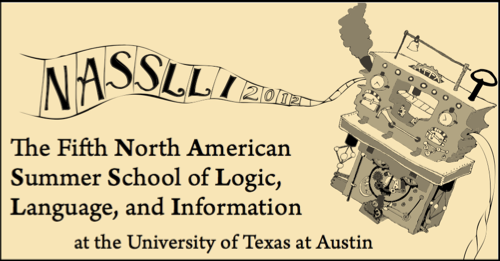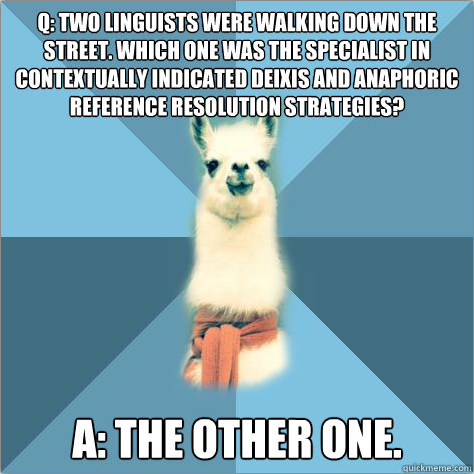Reference to humans with this and that
When is it rude to use this or that to refer to a person? A friend of mine, frustrated by someone who was moving too slow, muttered If this would only get out of the way…, and it was clearly a hostile putdown. But it's not a hostile putdown in a case like This person wants to know where the police station is. So could it be that when dependent this or that is used with a (non-insulting) noun denoting a human being it can be polite, but it's never polite to use it on its own to refer to a human being? No, that can't be right either, because it's perfectly polite to say This is my friend John. Whereas !*Have you met this? or !*This would like to meet you would be rude (I mark this grammatical-only-as-deliberately-rude status with a "!*" prefix). What is the rule or principle here? There must be one, because I know, tacitly, when to use this for human beings. It's just that I don't know what it is that I tacitly know.
Read the rest of this entry »



